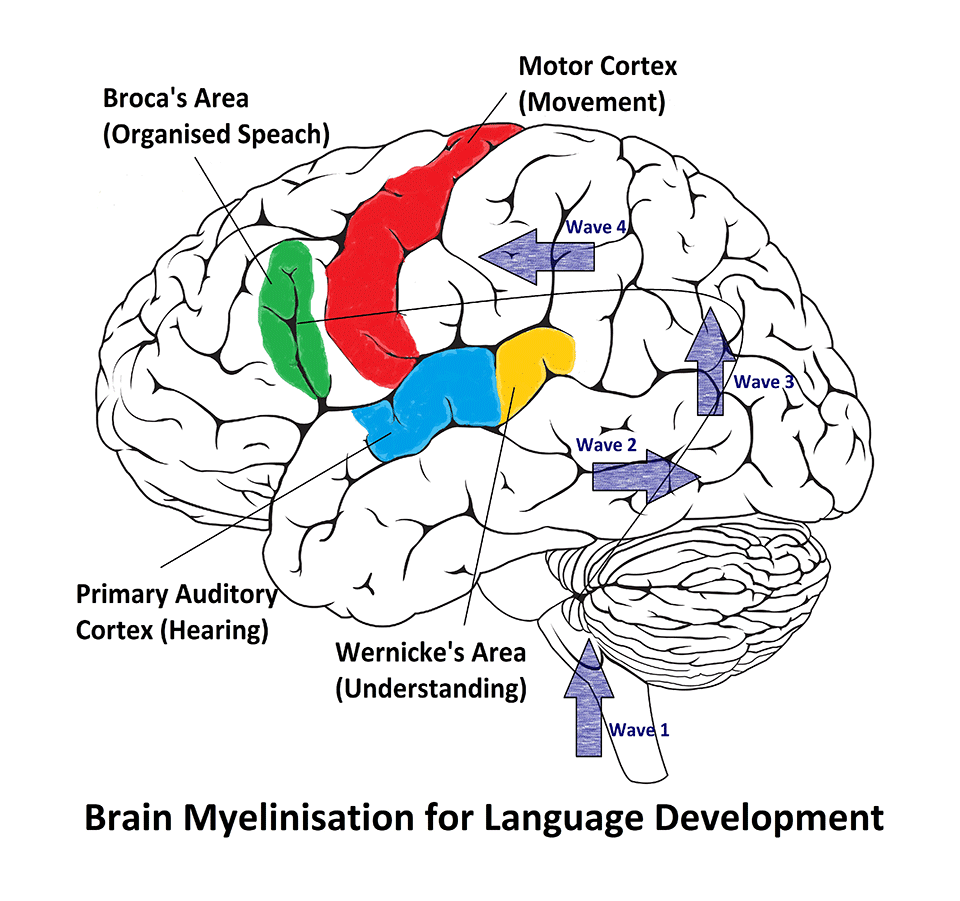As a new parent, you may be wondering how you can help your child develop and grow to their fullest potential. One area to focus on is language development, as it can have a significant impact on your child’s social and cognitive skills. But where do you start? Understanding how your baby’s brain develops language skills is the first step.
 Source: bing.com
Source: bing.comTable of Contents
The Science of Baby Brain Language Development
Did you know that a baby’s brain is wired to learn language from birth? The human brain is remarkable, and it starts developing language skills in the womb. By the time your baby is born, they can already recognize the sound of your voice and distinguish it from others. As your baby grows, their brain will continue to develop and refine these language skills.
The part of the brain responsible for language development is called the left hemisphere, and it’s the area that processes sounds and words. During the first few months of life, your baby’s brain will be busy making new connections between neurons, or brain cells. These connections are strengthened every time your baby hears a new sound or word. By six months, your baby can differentiate between different speech sounds, and by one year, they can understand simple commands and say a few words.
How to Help Your Baby Develop Language Skills
As a parent, you play a vital role in your baby’s language development. Here are a few tips to help your baby develop language skills:
- Talk to your baby as much as possible. Even if they can’t talk back yet, they’re still learning from the sound of your voice.
- Read to your baby every day. This can help them develop listening and comprehension skills and build their vocabulary.
- Sing songs and rhymes with your baby. This can help them learn about rhythm and tone, which are essential for speech development.
- Respond to your baby’s coos and babbles. This can help them learn about turn-taking in conversation and encourage them to communicate more.
Remember, it’s never too early to start helping your baby develop language skills. By talking, reading, and singing to your baby, you’re laying the foundation for a lifetime of learning.
When to Seek Help
While every baby develops at their own pace, there are some red flags to look out for when it comes to language development. If your baby isn’t responding to sounds, isn’t babbling or cooing by six months, or isn’t saying any words by 12 months, it’s important to talk to your pediatrician. Early intervention can make a significant difference in your baby’s language development.
Conclusion
Your baby’s brain is a remarkable thing, and understanding how it develops language skills can help you support their growth and development. By talking, reading, and singing to your baby, you’re giving them the tools they need to succeed in life. And remember, if you have concerns about your baby’s language development, don’t hesitate to talk to your pediatrician.
Frequently Asked Questions
Q: How can I tell if my baby is developing language skills?
A: By six months, your baby should be babbling and responding to sounds. By one year, they should be saying a few words. If you have concerns about your baby’s language development, talk to your pediatrician.
Q: Can reading to my baby really help with their language development?
A: Yes! Reading to your baby can help build their vocabulary, listening comprehension, and cognitive skills. It’s never too early to start reading to your little one.
Q: When should I be concerned about my baby’s language development?
A: If your baby isn’t responding to sounds, isn’t babbling or cooing by six months, or isn’t saying any words by 12 months, it’s important to talk to your pediatrician. Early intervention can make a significant difference in your baby’s language development.
Q: How can I incorporate language development into my daily routine with my baby?
A: Talking to your baby as much as possible, reading to them every day, singing songs and rhymes, and responding to their coos and babbles are all great ways to incorporate language development into your daily routine.
Q: What if I have concerns about my baby’s language development but I’m not sure if it’s a problem?
A: It’s always better to be safe than sorry. If you have concerns about your baby’s language development, talk to your pediatrician. They can help determine if there’s a problem and recommend any necessary interventions.
